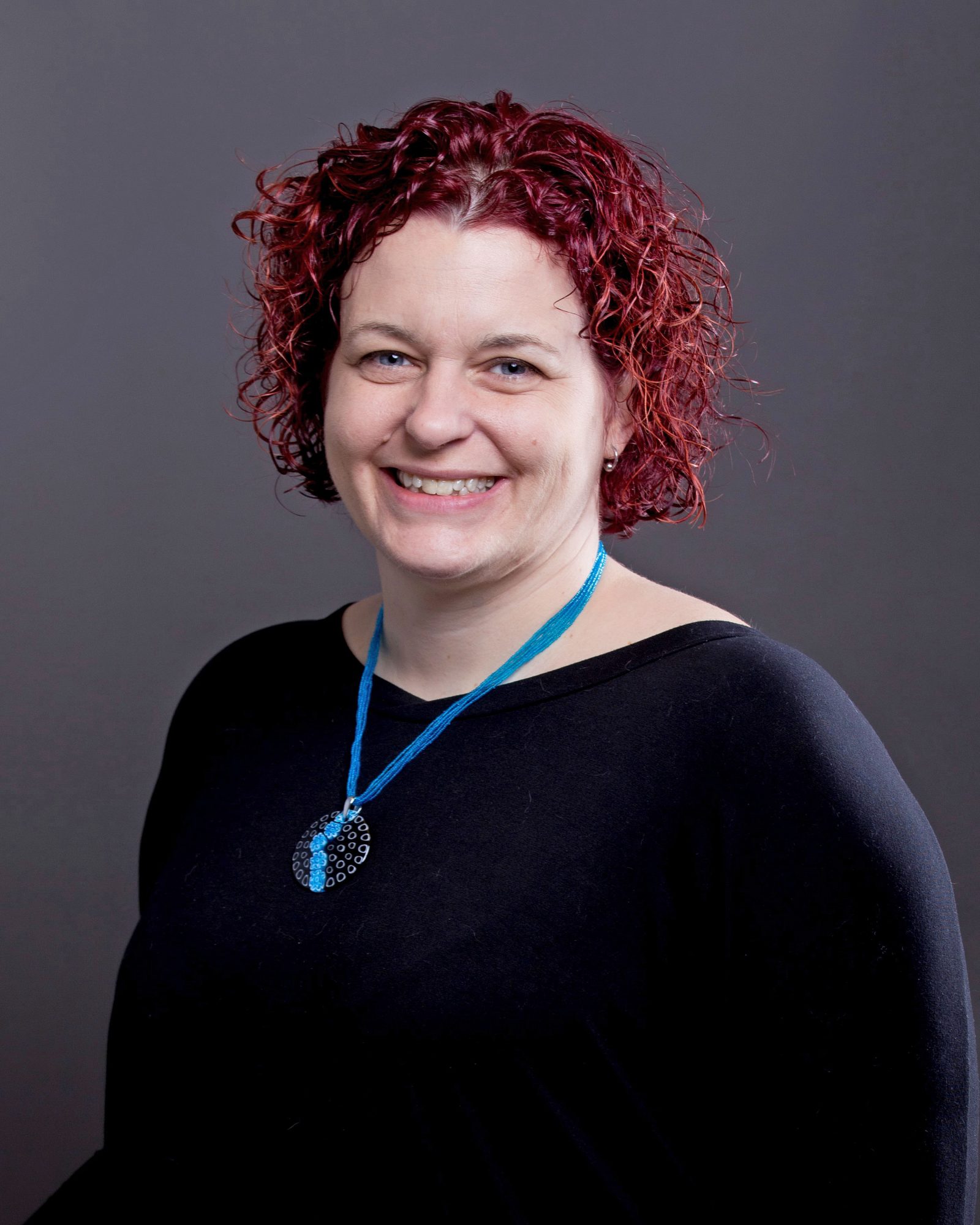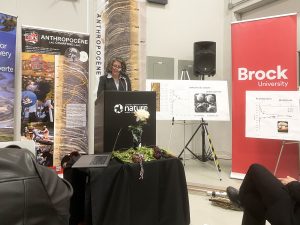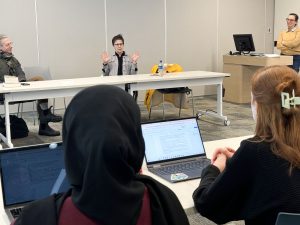 Lisa Whittingham is the recipient of a prestigious SSHRC doctoral fellowship for her research looking at police officer interactions with people with intellectual and developmental disabilities.
Lisa Whittingham is the recipient of a prestigious SSHRC doctoral fellowship for her research looking at police officer interactions with people with intellectual and developmental disabilities.As a behaviour therapist, Lisa Whittingham spent years working with individuals with intellectual and development disabilities (IDD).
“While persons with IDD are generally law-abiding citizens, sometimes they engage in dangerous or risky behaviours that brings them into contact with the police, but is charging them with an offence the best course of action?” Whittingham says. “We know these individuals would likely benefit more from being referred to a community service. However, how these situations advance is up to the discretion of the police officer responding to the call.”
Whittingham noticed how these situations were handled varied greatly.
“I was interested in learning more about what influenced the police to make their respective decisions and decided to take my PhD in Child and Youth Studies at Brock,” she says.
Now in her fourth year of the program, Whittingham has been awarded a prestigious Doctoral Fellowship from the Social Sciences and Humanities Research Council of Canada (SSHRC) and is one of only two recipients at Brock.
“To receive recognition for my work at this level gives me new motivation and allows me to continue the research I love,” Whittingham says. “It also enables me to connect with other researchers doing similar work provincially, nationally and internationally.”
Whittingham hopes the findings from her research can influence future training protocol for police officers and help with screening for developmental disabilities earlier in the criminal justice process.
The second Brock recipient of a SSHRC Doctoral Fellowship is Victoria Dykstra, a second-year PhD student in Psychology.

Victoria Dykstra, a PhD student studying Psychology, is one of two students at Brock to receive a Doctoral Fellowship from the Social Sciences and Humanities Research Council of Canada.
Dykstra is using her SSHRC funding to study adolescent lie-telling. Specifically, she’s looking to learn why adolescents lie more than adults or children.
“In the field of lie-telling, studies on adolescents are limited,” she says. “Building positive friendships is a key part of adolescence. It’s important to understand behaviours adolescents are prone to that could prevent their ability to form positive friendships, such as lie-telling.”
Dykstra says the use of lie-telling across various situations and relationships makes studying it even more important.
“Lies can be used to protect someone’s feelings or preserve relationships, or for self-serving reasons, like avoiding punishment after doing something wrong,” she says. “The impact of a lie varies by our relationship with the recipient, the motivation for the lie, and the context of the lie.”
Dykstra hopes the results of her study can eventually help influence moral education programs for youth.
“If we can understand why adolescents lie, we may be able to understand how to better encourage honesty,” she says.
For Dykstra, knowing a national agency like SSHRC sees value in her research is rewarding.
“This funding will allow me to focus on cultivating my research experience and give me more freedom to share my findings outside of Brock,” she says.
Both Whittingham and Dykstra credit their supervisors with helping them secure SSHRC funding.
“My amazing supervisor, Voula Marinos has been an ongoing source of guidance and encouragement for me,” Whittingham says.
Dykstra says she has been guided by two outstanding professors, Angela Evans and Teena Willoughby, who she says “have both been incredible mentors to me.”
Dean of Graduate Studies Suzanne Curtin says the two demonstrate the calibre of research taking place at Brock.
“Their impressive projects and outstanding contributions to their respective fields highlight how graduate student research impacts society and community,” she says.









